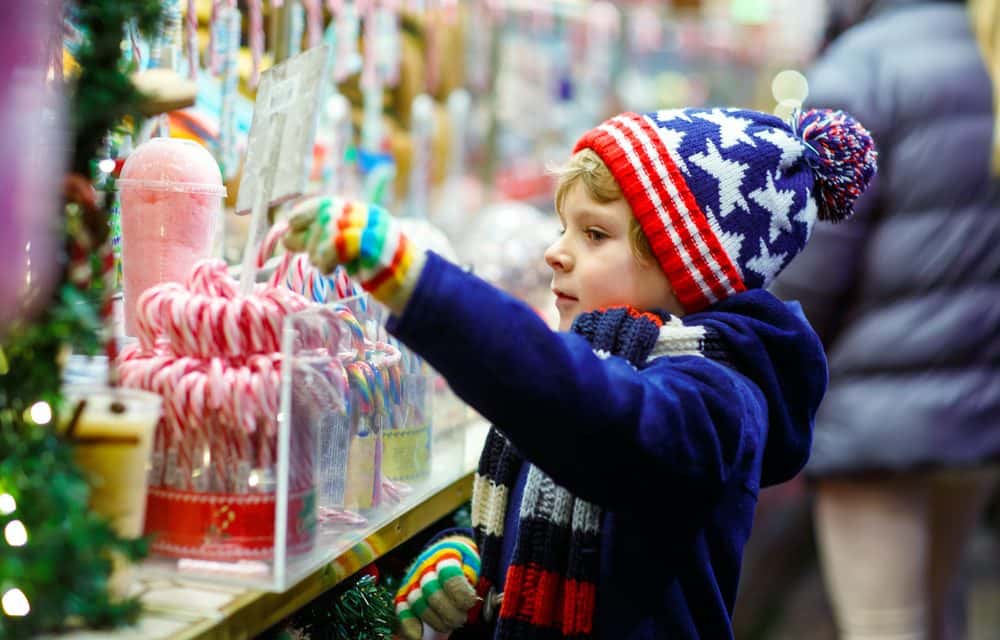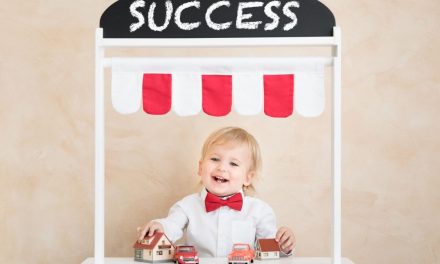 The holidays are often a time where we anticipate lots of wonderful family time together. So much of our energy and resources are devoted to creating optimal experiences around the holidays, and yet many parents dread some of the practical challenges of getting through the holiday periods. This is an article about managing the holidays from a practical point of view. Here are seven simple ways to make the holidays easier, happier, and more rewarding.
The holidays are often a time where we anticipate lots of wonderful family time together. So much of our energy and resources are devoted to creating optimal experiences around the holidays, and yet many parents dread some of the practical challenges of getting through the holiday periods. This is an article about managing the holidays from a practical point of view. Here are seven simple ways to make the holidays easier, happier, and more rewarding.
Tip #1: Kids thrive on structure, so take advantage of this.
When kids are moving smoothly through life, there is usually a consistent structure and routine to their day. Kids (and most adults) generally thrive on structure and predictability.
How do most teachers manage a classroom with 25 kids? They do so by establishing a structure and routine in which kids thrive. AND they stick to the routine.
Most families that function smoothly and effortlessly adhere to a fairly consistent structure. Every bit of the research I have examined supports the important role of consistent routines and structure.
Question: How can you predictably bring tension, stress, and chaos into your life over the Holidays?
Answer: Take the kids out of their routines, and put them into an unstructured world with unlimited free time and free play. IT WILL GET UGLY!
Want the holidays to go smoothly? Put some structure into the week!
That’s right: make a plan for how things will unfold each day. As much as possible, create some consistency in the day-to-day plan. Make sure the kids are in on it. In other words, let them know how things will flow. This will leave less room for negotiation, complaining, pondering, questioning, and on-the-spot decision-making.
Why is this important? Because it means that most of the questions have been answered in advance. This is one of the secrets to a smooth and stress-free life.
Make most of the decisions about activity in advance, and life just seems to move along more smoothly. It relieves stress and anxiety for kids, even if they argue against it.
Tip #2: Take advantage of the leverage you have available.
What do I mean by this? Set up a daily plan that includes a “work, then play” component. If you are home with the kids every day, make sure that they take on some responsibilities every day, before they are free to begin play. While this may not happen on Christmas morning, of course, there will be many other mornings where this can apply.
By work than play, I mean set up a simple daily plan where the kids are required to complete a few responsibilities, and perhaps read for a half-hour before they can play. Simply don’t let the TV, video games, or toys come out before the work is done.
 Repeat this after lunch, with some type of more structured activity or responsibility before free time in the afternoon.
Repeat this after lunch, with some type of more structured activity or responsibility before free time in the afternoon.
After dinner, it’s a bit more of the same. Make life easier by having dinner, followed by a bath, clean-up, and then free (play) time before bedtime.
See the pattern? Keep using your leverage. Get the little responsibilities done first, and then playtime becomes the natural reward for taking care of business. This can make your life easier, and the sense of structure helps to keep children in an environment that feels predictable and comfortable.
Tip #3: Set limits on behavior – with consequences, not words and threats.
Throughout the holidays, there will inevitably be times when the kid’s behavior escalates. If you find yourself reminding, threatening, negotiating, and nagging kids over and over, then please consider this:
It is much easier to establish limits on how loud, or how physical, or how volatile their behavior can be by using consequences – rather than words or threats. Don’t be afraid to put the kids into time-out – regardless of where you are at – if their behavior is out-of-control.
If you’re at Grandma’s house and everyone’s trying to enjoy a meal, and your child is out of control, walk them to the car and sit in the car for a 10-minute time out. You will likely only need to do this once or twice, and your kids will get the message.
Do the same if you are shopping, and things get out of control.
You can also repeat this powerful strategy if you are eating at Friendly. Take the kids to the car and sit for a few minutes (until completely quiet for 5 minutes). Then try it again.
You must remain a parent of action – and not words – if you want your words to count!
Tip #4: It’s okay if the kids are not happy every moment.
To maintain limits, and to teach children to function within those limits, it is essential to set limits on behavior at times. Be willing to do so, regardless of where you are. Will they be happy about that? No; so don’t expect it. Allow them to be unhappy when you set limits. Just stick to those limits – without a lot of emotion or upset.
If you allow your location (being in public or at grandma’s house) to dictate whether or not you intervene with your children’s misbehavior, your children will learn that they “own” you in those situations. You will inevitably lose more and more control over their behavior in those situations. It is essential to stick to those limits and allow unhappiness.
So don’t worry if the kids are not happy with you all the time, that’s okay! It will pass. Simply don’t take it personally. The fact that they’re not happy is something that they’ll get over. Just remember not to invest yourself in their unhappiness.
Also, remember that kids may not always be happy with gifts. Let them be unhappy. Don’t try to rescue them from some disappointment, because the latest version of “The Ultimate Best Most Grandest Wonderful Newest _______ ” wasn’t available. They need to deal with it and not find you indulging them in efforts to redirect their whining and complaining; it will pass.
Tip #5: Observe the 80/20 rule: Put 80% of your energy on what you appreciate and value, and commit 20% or less of your energy to problem behavior.
This rule suggests that you spend most of your time searching for moments when the kids are happy, getting along well, and are engaged in responsible, kind, cooperative, and positive behavior. Obsess on noticing and engaging the children during these times. Make sure this gets 80% of your child-focused energy, and magic will flow from this over the days and weeks ahead.
Commit yourself to spend less energy noticing the obnoxious, annoying, irritating, whining behaviors that have previously sucked you in. Try to ignore as much of this as you can. When it’s time to step in because it’s just too much, make sure you step in with a clear consequence – not with a word or threat. In this way, kids will get the message.
Tip #6: Stress comes from our thinking – not from reality.
What do I mean by this? We get stressed when we start to think about the world in a way where we focus more and more energy on what “should be” or what “must be” or what “needs to be”. These ideas are not reality. They just represent our way of thinking about reality.
We pretend (with our thoughts and worry) that things “should” be one way when reality has shown us that it is another.
We hold to the idea that something “must” happen, and reality shows us it doesn’t. We think something “needs” to happen, and reality shows us it doesn’t need to do anything.
The more we hold these false ideas and think with such distorted thoughts (usually in the form of worry), the more we experience stress.
We can also create unrealistic expectations by trying to create perfect moments. We can obsess on making sure that we buy the perfect gift, and then imagine the perfect reaction. We, in essence, try to control reality – and we can’t.
My suggestion: Let it go!
That’s right. Let it go! Let go of fantasies of perfection and instead embrace the joyous gifts that are right in front of you. Be fully engaged in the magic and the mystery of it all. It’s much more exciting and interesting that way – and much less stressful.
 Does that mean that I am suggesting you let go of the idea of creating a joyful holiday season? Of course not! I am suggesting that you let go of the idea that things “should” be different than they are. Let go of your ideas of perfection. Let go of the idea of a movie in your head about how the kids will react to every gift. Let go of the idea that the party must go this way or that people should react that way. Let it go.
Does that mean that I am suggesting you let go of the idea of creating a joyful holiday season? Of course not! I am suggesting that you let go of the idea that things “should” be different than they are. Let go of your ideas of perfection. Let go of the idea of a movie in your head about how the kids will react to every gift. Let go of the idea that the party must go this way or that people should react that way. Let it go.
Simply do your best, and then…
Allow these moments to unfold as they unfold. This will enable you to be more of a part of these moments, rather than evaluating these moments. Just remember, the holidays will arrive whether you feel like you are prepared for them or not. The more you try to create an idea of perfection, the more likely you will be disappointed. Finally…
Tip #7: Invest more of yourself – not more of your pocketbook.
I know this might seem a bit trite, but, at times, it seems as though we have all gotten lost. I do it. My family does it. We all seem to do it – at times.
We get lost in a society so immersed in materialism that virtually everything teaches our children that the holidays are really about what you get, and not what you give. Even worse, at times, we focus on getting more – and more – without appreciating the enormous gifts we receive daily.
So as you think about what you’ll give during the holiday season, I invite you to consider how you could be giving more of yourself.
- Not more toys, but more time with the kids while playing with the toys;
- Not bigger meals, but more time with the children during simple snacks;
- Not more playdates with all their friends, but more playdates with Mom and Dad.














